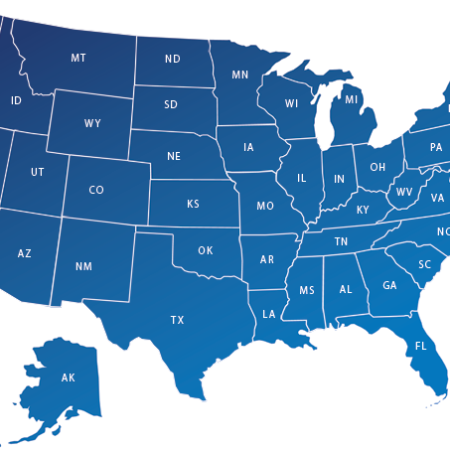Living and working in different states brings along complications that businesses need to consider for their employees.
Most people live and work in the same state. A growing number of people, however, live and work in different states. In key hubs like the tri-state area (New York, New Jersey and Connecticut) this has been the norm for decades. But as the cost of living in important centers of employment continue to rise, more families are being forced to commute farther—and across state lines—in order to enjoy a decent standard of living. With unemployment hovering just below 9 percent, receiving a job offer in a different state without an accompanying relocation package is far more common, meaning one parent and the kids stay behind while the other parent flys to work every week.
Making matters even more complicated are short-term projects across state lines. If an employee spends several weeks in a different state, then technically state income taxes may be due to that additional state. Keeping track of this is extremely cumbersome and noncompliance is common. As more companies begin looking for projects across state lines or hire employees to do work in multiple states on short-term projects terrible confusion ensues.
One problem that arises due to this situation is the actual calculation of income taxes for each state. Millions of tax payers simply aren’t doing this correctly because each state has their own requirements as to whether or not someone needs to file a tax return. In some states simply working for one day may trigger the need to file a non-resident income tax return and require the employer to withhold taxes. Many payroll departments aren’t managing this correctly. Those that do are spending large amounts of money to comply.
If there is a discrepancy and an audit is triggered by the state, the burden of proof is on the taxpayer.
For this reason, Republican Representative Howard Coble of North Carolina and Democrat Representative Hank Johnson of Georgia have introduced The Mobile Workforce State Income Tax Simplification Act of 2011. This bill was introduced under a previous session of Congress but was never taken to a vote. The Congressmen have just reintroduced it. The AICPA has endorsed the legislation as have many businesses that regularly send employees across stateliness for short-term projects.
If the act were to become law, it would set a national limit of 30 days before an employee’s activities would trigger the requirement to file a non-resident income tax return. It also establishes 30 days as the threshold for state income tax withholdings to go into effect.
Another similar problem that needs to be addressed is the matter of sales taxes. The rules vary tremendously from state to state. In a 2007 decision (Hearing No. 46,628) the Texas Comptroller of Public Accounts determined that a seller of dental equipment who went to Texas for one day to attend a tradeshow was responsible for paying sales taxes on any sales generated at the tradeshow. The administrative burden is significant. It’s doubtful that most tradeshow attendees think about the sale tax implications of their sales.
